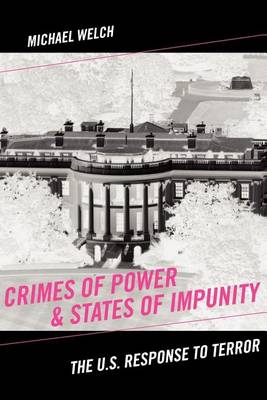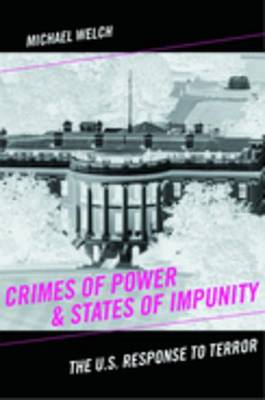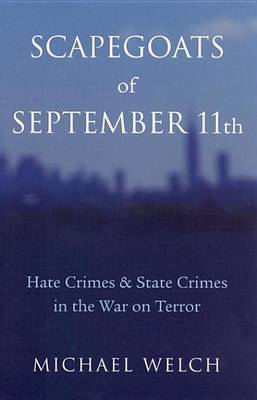Critical Issues in Crime and Society
3 total works
Since 9/11, a new configuration of power situated at the core of the executive branch of the U.S. government has taken hold. In Crimes of Power & States of Impunity, Michael Welch takes a close look at the key historical, political, and economic forces shaping the country's response to terror. Welch continues the work he began in Scapegoats of September 11th and argues that current U.S. policies, many enacted after the attacks, undermine basic human rights and violate domestic and international law. He recounts these offenses and analyzes the system that sanctions them, offering fresh insight into the complex relationship between power and state crime. Welch critically examines the unlawful enemy combatant designation, Guantanamo Bay, recent torture cases, and collateral damage relating to the war in Iraq. This book transcends important legal arguments as Welch strives for a broader sociological interpretation of what transpired early this century, analyzing the abuses of power that jeopardize our safety and security.
From its largest cities to deep within its heartland, from its heavily trafficked airways to its meandering country byways, America has become a nation racked by anxiety about terrorism and national security. In response to the fears prompted by the tragedy of September 11th, the country has changed in countless ways. Airline security has tightened, mail service is closely examined, and restrictions on civil liberties are more readily imposed by the government and accepted by a wary public. The altered American landscape, however, includes more than security measures and ID cards. The country's desperate quest for security is visible in many less obvious, yet more insidious ways. In ""Scapegoats of September 11th"", criminologist Michael Welch argues that the ""war on terror"" is a political charade that delivers illusory comfort, stokes fear, and produces scapegoats used as emotional relief. Regrettably, much of the outrage that resulted from 9/11 has been targeted at those not involved in the attacks on the Pentagon or the Twin Towers. As this book explains, those people have become the scapegoats of September 11th. Welch takes on the uneasy task of sorting out the various manifestations of displaced aggression, most notably the hate crimes and state crimes that have become embarrassing hallmarks both at home and abroad. Drawing on topics such as ethnic profiling, the Abu Ghraib scandal, Guantanamo Bay, and the controversial Patriot Act, Welch looks at the significance of knowledge, language, and emotion in a post-9/11 world. In the face of popular and political cheerleading in the war on terror, this book presents a careful and sober assessment, reminding us that sound counterterrorism policies must rise above, rather than participate in, the propagation of bigotry and victimization.


